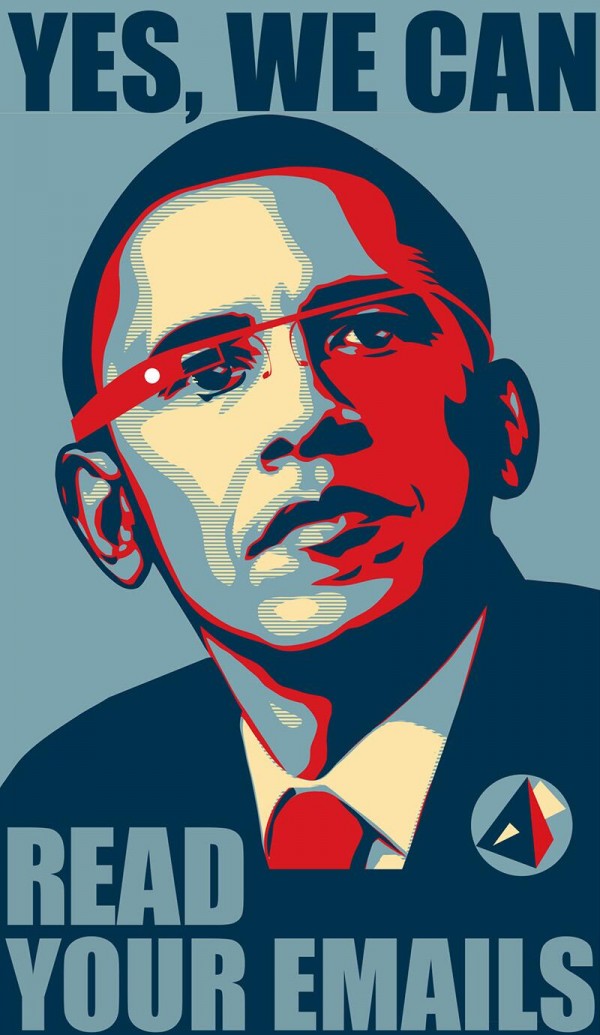THE NEW YORKER: Reggie Walton, the FISA judge overseeing the [NSA’s warrantless spying on Aericans] at that time, wrote, in an opinion on January 28th, that he was “exceptionally concerned” that the N.S.A. had been operating the program in “flagrant violation” of the court’s orders and “directly contrary” to the N.S.A.’s own “sworn attestations.” Walton was considering rescinding the N.S.A.’s authority to run the program, and was contemplating bringing contempt charges against officials who misled the court or perhaps referring the matter to “appropriate investigative offices.” He gave Olsen three weeks to explain why the court shouldn’t just shut down the program. The controversy was known at the court as the “ ‘big business’ records matter.”
At the White House, Olsen and Powell told Obama of the problems. “I want my lawyers to look into this,” Obama said. He pointed at Holder and Craig. Olsen believed that the N.S.A. simply had difficulty translating the court’s legal language into technical procedures; it could all be fixed. Wyden believed that the court never should have allowed the N.S.A. to collect the data in the first place. In his view, the court’s unusually harsh opinion gave Obama an opportunity to terminate the program.
“That was a very, very significant moment in the debate,” Wyden told me. “Everybody who had been raising questions had been told, ‘The FISA court’s on top of this! Everything that’s being done, the FISA court has given the O.K. to!’ And then we learned that the N.S.A. was routinely violating the court orders that authorized bulk collection. In early 2009, it was clear that the N.S.A.’s claims about bulk-collection programs and how carefully those programs were managed simply were not accurate.”
On February 17th, about two weeks after the White House briefing, Olsen, in a secret court filing, made the new Administration’s first official statement about Bush’s phone-metadata program: “The government respectfully submits that the Court should not rescind or modify the authority.” He cited a sworn statement from Keith Alexander, who had replaced Hayden as the director of the N.S.A. in 2005, and who insisted that the program was essential. “Using contact chaining,” Olsen wrote, “N.S.A. may be able to discover previously unknown telephone identifiers used by a known terrorist operative . . . to identify hubs or common contacts between targets of interest who were previously thought to be unconnected, and potentially to discover individuals willing to become US Government assets.”
Judge Walton replied that he was still troubled by the N.S.A.’s “material misrepresentations” to the court, and that Alexander’s explanation for how they happened “strains credulity.” He noted that the FISA court’s orders “have been so frequently and systemically violated that it can fairly be said that” the N.S.A. program “has never functioned effectively” and that “thousands of violations” occurred. The judge placed new restrictions on the program and ordered the agency to conduct a full audit, but he agreed to keep it running. Olsen, and Obama, had saved Bush’s surveillance program. […]
Any doubts about the new Administration’s position were removed when Obama turned down a second chance to stop the N.S.A. from collecting domestic phone records. The business-records provision of the Patriot Act was up for renewal, and Congress wanted to know the Administration’s position. It was one thing to have the Justice Department defend the program in court. But now Obama had to decide whether he would publicly embrace a section of the Patriot Act that he had criticized in his most famous speech and that he had tried to rewrite as a senator. He would have to do so knowing that the main government program authorized by the business-records provision was beset by problems. On September 14th, Obama publicly revealed that he wanted the provision renewed without any changes. “At the time of the U.S.A. Patriot Act, there was concern that the F.B.I. would exploit the broad scope of the business-records authority to collect sensitive personal information on constitutionally protected activities, such as the use of public libraries,” a Justice Department official wrote in a letter to Congress, alluding to one of Obama’s former concerns. “This simply has not occurred.” The letter, which was unclassified, did not explain the details of the metadata program or the spiralling compliance issues uncovered by the court. Wyden’s early hope, that Obama represented a new approach to surveillance law, had been misguided. MORE

